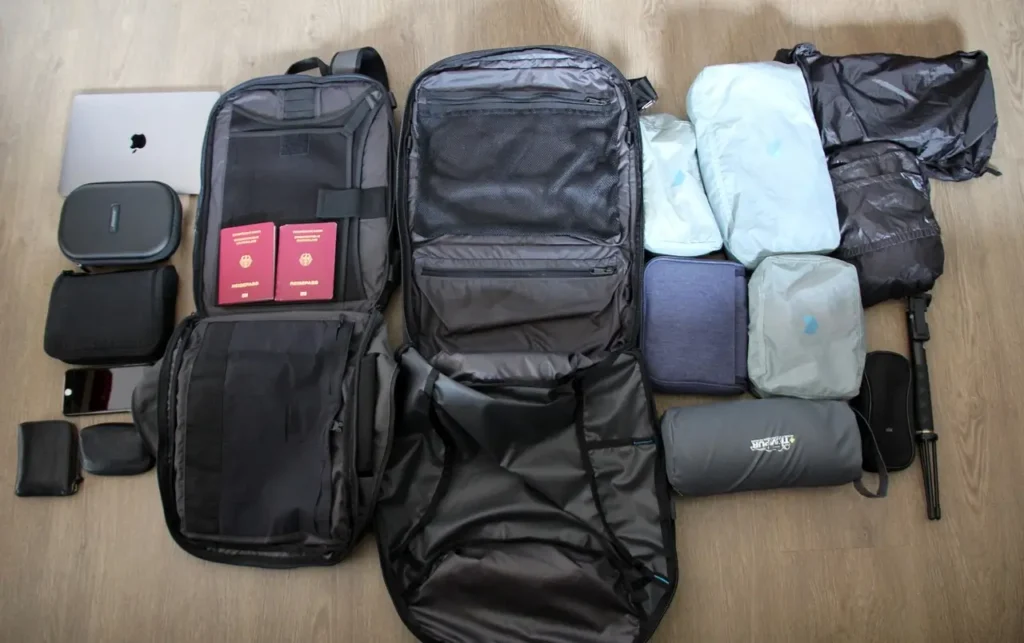Student Visas are your golden ticket to studying abroad, but the application process can be a maze. Want to understand how to navigate it smoothly? This guide breaks it all down for you, step-by-step, so you can focus on your academic journey. Ready to demystify the world of student visas? Let’s get started!
What are Student Visas?
Student visas are special endorsements added to your passport that allow you to enter and stay in a foreign country for the purpose of studying at an accredited institution. Without a student visa, you won’t be able to legally attend school or stay in your host country for the duration of your program. Different countries have different types of student visas, each with specific requirements and conditions.
The Importance of Student Visas
Having a student visa is crucial for international education. It not only legitimizes your stay in a foreign country but also provides certain rights and protections while you are abroad. Additionally, holding a student visa often allows you to work part-time and access local health services, making your stay more manageable and enriching.
Types of Student Visas
Short-Term Student Visas
Short-term student visas are designed for students enrolled in short courses or programs, typically lasting less than six months. These visas are relatively easier to obtain but come with strict limitations on work and stay duration.
Long-Term Student Visas
Long-term student visas cater to students attending full-time courses or degree programs that last longer than six months. These visas often provide more benefits, such as the ability to work part-time and sometimes even pathways to permanent residency.
Eligibility Criteria
To apply for a student visa, you must meet specific eligibility criteria. These usually include:
- Acceptance from a recognized educational institution
- Proof of sufficient financial resources
- A clean criminal record
- Health insurance coverage
- Meeting the language proficiency requirements
The Application Process
Step 1: Get Accepted
The first step in obtaining a student visa is to secure admission to a recognized educational institution. Most universities and colleges will provide you with an acceptance letter, which is a crucial document for your visa application.
Step 2: Prepare Your Documents
Gather all necessary documents, which typically include:
- A valid passport
- Passport-sized photos
- Acceptance letter from your educational institution
- Proof of financial stability
- Health insurance coverage
- Completed visa application form
- Payment of visa application fee
Step 3: Submit Your Application
Submit your visa application either online or at the nearest embassy or consulate of your host country. Ensure that all documents are complete and accurate to avoid delays or rejections.
Step 4: Attend an Interview
Some countries require you to attend a visa interview. Prepare for questions about your study plans, financial status, and intent to return to your home country after your studies.
Step 5: Wait for Approval
After submitting your application and attending the interview (if required), all you can do is wait. Processing times vary by country, so apply well in advance of your intended travel date.
Real-Life Example: Sarah’s Journey to Canada
Sarah, an aspiring engineer from Nigeria, wanted to study in Canada. She applied to several universities and got accepted into her dream program. After gathering her documents, she submitted her visa application and attended an interview at the Canadian consulate. A few weeks later, she received her student visa, packed her bags, and embarked on an exciting academic journey.
Common Challenges and How to Overcome Them
Financial Proof
One common challenge is proving you have enough funds to support yourself. Ensure you have bank statements, scholarship letters, or financial guarantees to show you can cover tuition and living expenses.
Language Proficiency
Meeting language proficiency requirements can be another hurdle. Prepare well for language tests like IELTS or TOEFL and aim to meet or exceed the required scores.
Timing and Deadlines
Visa processing times can be lengthy. Apply as early as possible to avoid missing important deadlines. Keep track of all dates and ensure timely submission of all required documents.
Maintaining Your Student Visa Status
Once you have your student visa, it’s crucial to maintain your status by adhering to the visa conditions. This typically includes:
- Attending classes regularly
- Maintaining a full-time course load
- Not working more hours than permitted
- Renewing your visa before it expires
Post-Graduation Options
After completing your studies, you might want to stay in your host country to work or continue your education. Many countries offer post-study work visas, allowing you to gain valuable work experience. Research these options well in advance to plan your next steps.
FAQs
How long does it take to get a student visa?
Processing times vary by country but generally range from a few weeks to several months. It’s best to apply as early as possible.
Can I work on a student visa?
Most student visas allow limited work hours, typically up to 20 hours per week during the academic term and full-time during holidays.
What if my visa application is rejected?
If your application is rejected, review the reasons provided, rectify any issues, and reapply if possible. Seeking guidance from the educational institution or a visa consultant can be helpful.
Do I need health insurance to get a student visa?
Yes, most countries require proof of health insurance coverage as part of the visa application process.
Can my family join me on a student visa?
Some countries allow family members to join you on a dependent visa. Check the specific regulations of your host country for details.
What should I do if my student visa expires?
You must renew your student visa before it expires. Begin the renewal process well in advance to avoid any legal complications.
Understanding and navigating the student visa process can seem overwhelming, but with the right information and preparation, you can successfully secure your visa and embark on your educational journey abroad. Good luck!



